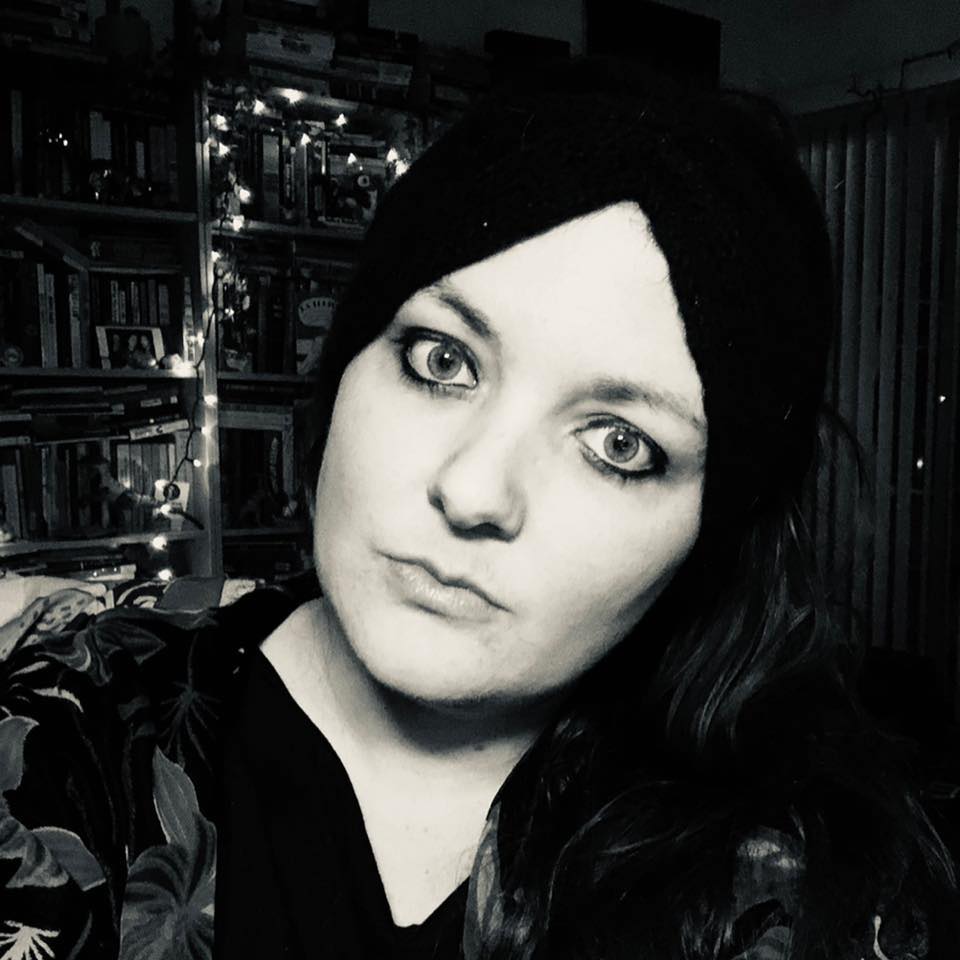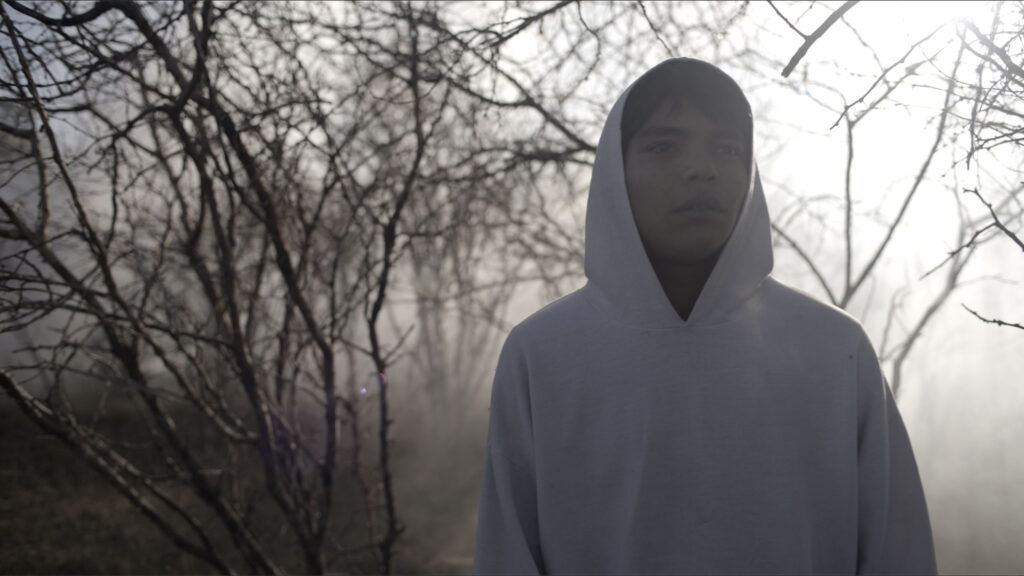An unlikely theme in this year’s World Dramatic section of the Sundance Film Festival is co-directed films that tell their tales through structured text chapters. Astrid Rondero and Fernanda Valadez‘s intimate and fable-like “Sujo” traces the life of an orphaned boy as he attempts to escape the cycle of Mexican cartel violence. “In the Land of Brothers,” an epic and poetic family saga from Raha Amirfazli and Alireza Ghasemi, follows three members of an extended Afghan family over the course of three decades as refugees in Iran. The weakest of the three is Daniel Hoesl and Julia Niemann’s limp social satire “Veni Vidi Vici,” which allegedly seeks to examine the structures in place that allow the most powerful people in the world to continue perpetuating unchecked evil.
Like their debut “Identifying Features,” filmmakers Astrid Rondero and Fernanda Valadez continue to explore hot button social issues through a fiercely personal lens. Infusing their film with poetic visuals and a fable-like atmosphere, their latest film “Sujo” follows the life of the titular boy as he grows up in the shadow of the death of his sicario father Josue El Ocho (Juan Jesús Varela Hernández) at the hands of a rival cartel, and the woman who attempt to shepherd him to adulthood safely.
Orphaned at just four years old, Sujo (played by Kevin Uriel Aguilar Luna as a child) is raised by his hermit-like aunt Nemesia (Yadira Perez Esteban), whose name means vengeance. Neme, as he calls her, lives on an isolated goat farm in the mountains where mythic stories originate from the land just like the wolves, whose cries are always heard even if their bodies are never seen. Neme is fiercely protective of Sujo, yet emotionally distant. She can see ghosts and knows the future lies in letting go of the past while keeping your gaze fixed steadily ahead of you. When her friend (and lover) Rosalia (Karla Garrido) suggests Josue’s car and drug money is Sujo’s inheritance, Neme turns away from her. “None of it belongs to us,” she whispers.
Yet, the cartel violence—and the allure of money it brings with it—is never that far away, and soon it calls to Rosalia’s sons Jeremy (Jairo Hernández Ramírez) and Jai (Alexis Jassiel Varela). When the teenagers begin to pull Sujo (Juan Jesús Varela) back into the world of violence, Neme sends him to Mexico City, where a similarly steely literature professor named Susan (Sandra Lorenzano) might just help him save himself at last.
Each chapter of the film is named for an impressionable force in Sujo’s life: Josue El Ocho, Nemesia, Jeremy and Jai, and finally Susan, their stories layered together like a novel, weaving in and out of each other’s lives. Yet, ultimately, Sujo must come to realize his own worth, he must command his own fate. The filmmakers often frame him alone, a solo figure surrounded by the landscape of Michoacán and the cityscape of Mexico City. As we follow his journey, the weight of the film’s emotions build slowly, culminating in a visceral climax so resonant and deeply felt, it’s only after the credits roll that you realize you’ve been holding your breath, hoping Sujo finally gets to live life on his own terms, not one dictated by his place of birth or family’s choices.

As lyrical as it is captious, Raha Amirfazli and Alireza Ghasemi’s “In the Land of Brothers” begins with a text explaining that the title refers to the nickname Afghani refugees—totaling nearly 5 million people—have given to their adoptive country. Set in 2001, 2011, and 2021, each chapter follows a different member of an extended Afghani refugee family: Mohammad, Leila, and Ghasem.
We first meet the family living together in Bojnord, where shy teenager Mohammad (a soulful Mohammad Hosseini) splits his time growing tomatoes with his family, studying ironworks at school, and learning English at night with his sweetheart Leila (Hamideh Jafari, radiant). A decade later, a world-weary Leila, now with a child from an arranged marriage, works for a wealthy family in Bandar Anzali. A decade after that, Ghasem (Nikzad Bashir, tremendous) and his deaf wife Hanieh (Marjan Khaleghi) are living with their spunky young daughter Maryam (Sara Jafari ) in the city of Karaj, when they learn the true cost of trying call Iran home.
The filmmakers quickly establish a rich world of contrasts. In the first chapter, the family’s greenhouse is filled with the verdant greens and reds of tomatoes, leaves, and vines, while outside a cold white snow seems to envelop the whole world. At home, Mohammad is surrounded by the warmth of his family. Outside, he is harassed by police because of his refugee status who coerced into unpaid labor, and worse. In the second chapter, Leia’s whole body is tense, Jafari’s face an atlas of human emotion as she walks a tightrope of panic, after making a fateful discovery about her husband. However, her son Omid (Amirmohammad Alidousti) only knows the playful freedom of childhood innocence. Her wealthy Iranian employers talk nonchalantly about their upcoming trip to Canada, while Leila must hide the truth from them or risk deportation. In the final chapter, everyone seems settled at last. Hanieh operates from an irrepressible place of hope for her son Hamed’s future abroad while their daughter Maryam finds joy in boxing. Even Ghasem seems at peace, until he learns of their son’s unfortunate fate, after which his body quakes with grief and his eyes hold the weight of the world.

As a ceremony welcomes certain Afghani refugees as full citizens at last, the auditorium is filled with nothing but grieving families. It’s here the filmmakers leave you, wondering whether Iran will ever truly embrace these people as brothers and, in the end, if it was even worth the price they paid.
With “Veni Vidi Vici,” filmmakers Daniel Hoesl and Julia Niemann’s take aim at the billionaire class and their neoliberal enablers. Told in three chapters, one for each piece of the famous phrase, their film is slickly made, with clear inspirations found in the films of Ruben Östlund, but never rises above its initial premise, which is essentially the Ayn Rand quote which opens the film: “The point is, who will stop me?”
The film centers on the billionaire Maynard family, narrated by teenager Paula (Olivia Goschler), who has learned from her father, entrepreneur Amon, that there are no rules that regulate the behavior of people like them. She can foul while playing polo—it’s more fun that way—and still win. Her father is about to open the biggest renewable battery factory in Europe but needs to get some wildlife reserve land reclassified first. Oh, and he is also most definitely a sniper who has been killing people at random for months. Even when a gamekeeper witnesses a murder and a journalist presents concrete proof, the police, politicians, and the media continue to look the other way.
In their documentary work Hoesl and Niemann got to know the billionaire class up close, and so their recreation of this world of endless identical white Porsches and indoor infinity pools and gun-toting butlers is impeccable. But there’s also a lot of on the nose symbolism about material wealth and performative philanthropy, the scramble to hold on to power, and the way that those with no power eventually lose hope completely.
For all the film’s finger-pointing, there is very little actual examination of systems. Hoesl and Niemann seem to think the best way to critique the billionaire class is to merely show the absurdity of their unchecked actions, and the frustratingly smug tone of their film suggests this recreation in and of itself is a revolutionary act.












